Be the first to review “The Cold War & the University” Cancel reply
The Cold War & the University
Recorded at Boston University this is one of those rare historic events bringing two giants together. Chomsky comments: “The public is not supposed to be involved in policy. That’s true in practice, and it’s even a principle you can read about in standard texts on American politics. For example, one written a couple of years ago by Samuel Huntington at Harvard who said, “the architects of power must create a force that can be felt but not seen. Power remains strong when it remains in the dark. Exposed to sunlight it begins to evaporate.” I think that statement is very accurate, just like the statements by other leading intellectuals and academics who I quoted earlier. Part of the task of the institutions that are responsible for the indoctrination of the young and everyone else is to protect power from exposure. The Cold War provided a framework for that, but the issue is far broader, and it remains with us long after the Berlin Wall has thankfully collapsed into ruins.” Zinn says, “You think it’s easy to follow Noam Chomsky? [laughter] He just asked me, When was the last time we were on a platform together? I said, I think it was the last teach-in of the Vietnam War. We’ve been on a lot of platforms separately since, but nobody’s ever dared to put us together. It happened at Brandeis. We were having a teach-in to protest against American military aid to the Saigon government. It was the end of April 1975. As we were sitting on the platform, a Brandeis student came running down the aisle holding a news dispatch in his hand. He said, The Saigon government has surrendered. The war in Vietnam is over. The place exploded. So I’m hoping that sometime in the course of the evening somebody will come in and give us some real good news. Like, every government in the world has been overthrown.” [applause]Lectures with Q&A.
Speakers
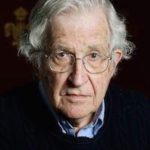
Noam Chomsky
Noam Chomsky, by any measure, has led a most extraordinary life. In one index he is ranked as the eighth most cited person in history, right up there with Aristotle, Shakespeare, Marx, Plato and Freud. His contributions to modern linguistics are legendary. In addition to his pioneering work in that field, he has been a leading voice for peace and social justice for many decades. Chris Hedges says he is “America’s greatest intellectual” who “makes the powerful, as well as their liberal apologists, deeply uncomfortable.” The New Statesman calls him “the conscience of the American people.” He is Professor Emeritus in the Department of Linguistics and Philosophy at MIT and Laureate Professor of Linguistics and Haury Chair in the Program in Environment and Social Justice at the University of Arizona. At 95, he continues to inform and inspire people all over the world. He is the author of scores of books, his latest are Consequences of Capitalism, Chronicles of Dissent and Notes on Resistance.
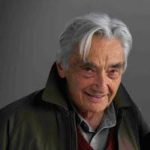
Howard Zinn
HOWARD ZINN CENTENARY 1922-2022
Howard Zinn, professor emeritus at Boston University, was perhaps this country’s premier radical historian. He was born in Brooklyn in 1922. His parents, poor immigrants, were constantly moving to stay, as he once told me, “one step ahead of the landlord.” After high school, he went to work in the Brooklyn Navy Yard. During World War II, he saw combat duty as an air force bombardier. After the war, he went to Columbia University on the GI Bill. He taught at Spelman, the all-Black women’s college in Atlanta. He was an active figure in the civil rights movement and served on the board of SNCC, the Student Nonviolent Coordinating Committee. He was fired by Spelman for his activism. He was among the first to oppose U.S. aggression in Indochina. His book Vietnam: The Logic of Withdrawal was an instant classic. A principled opponent of imperialism and militarism, he was an advocate of non-violent civil disobedience. He spoke and marched against the U.S. wars on Afghanistan and Iraq. His masterpiece, A People’s History of the United States, continues to sell in huge numbers. Among his many other books are You Can’t Be Neutral on a Moving Train, Failure to Quit: Reflections of an Optimistic Historian and Original Zinn with David Barsamian. Shortly before his death he completed his last great project, the documentary The People Speak. Always ready to lend a hand, he believed in and practiced solidarity. Witty, erudite, generous and loved by many the world over, Howard Zinn, friend and teacher, passed away on January 27, 2010. He would say, Don’t mourn. Get active. The struggle for peace and justice continues.

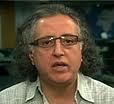
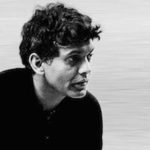
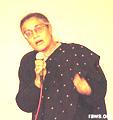
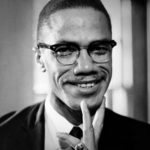
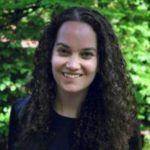
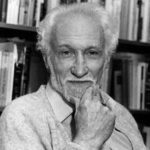
Reviews
There are no reviews yet.